Scientists to study how solar storms could affect future astronauts on Mars
- Published
- comments
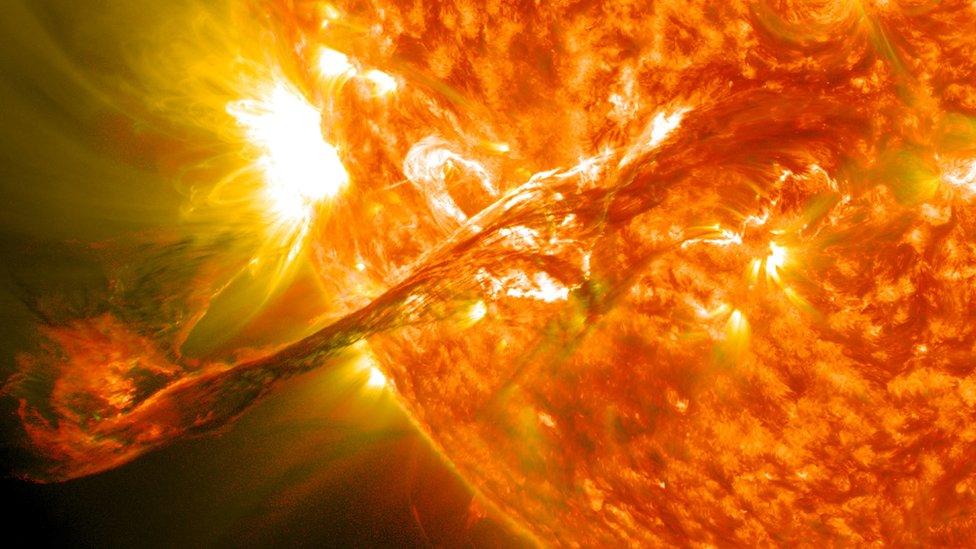
With the hope that humans will walk on Mars one day, scientists are keen to find out how to keep future Mars explorers safe.
Lots of giant explosions are due to erupt on the Sun in what's called a solar maximum - a period of lots of activity on our solar system's star.
The explosions from the Sun send radiation deep into space.
An event like this happens around every 11 years and scientists at Nasa will be looking at how this could affect robots and eventually astronauts on Mars.
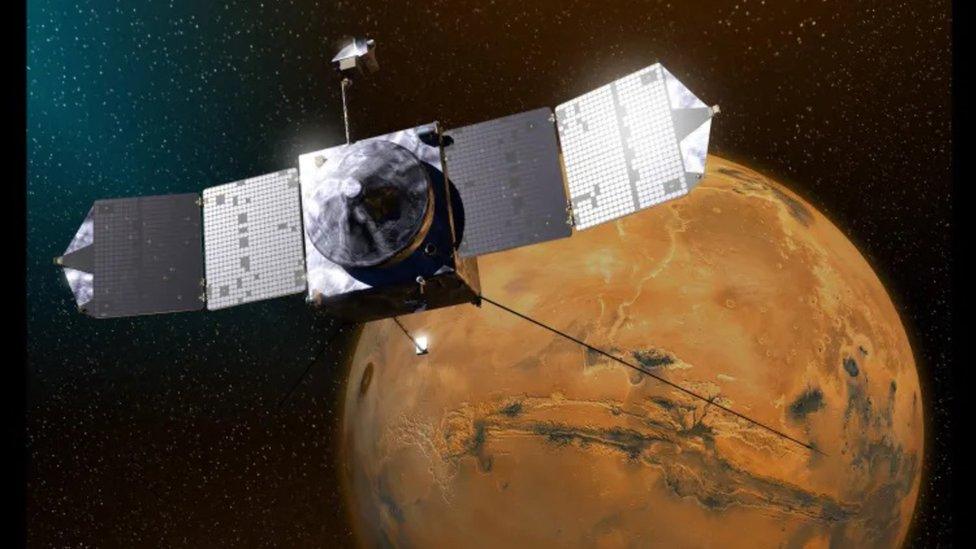
Certain types of radiation in extremely high doses can cause health problems.
Earth's magnetic field helps protect us against the effects of solar storms but it's thought Mars lost its magnetic field around 4.2 billion years ago.
That's why scientists are studying how the sun's radiation could affect astronauts, if they are to eventually step foot on the surface of the red planet.
Nasa scientists will be using MAVEN (Mars Atmosphere and Volatile Evolution) orbiter and the Curiosity Rover to collect data to work out how bad solar storms could be for humans on Mars.
Shannon Curry, from Nasa's MAVEN team, said: "I'd actually love to see the 'big one' at Mars this year - a large event that we can study to understand solar radiation better before astronauts go to Mars."
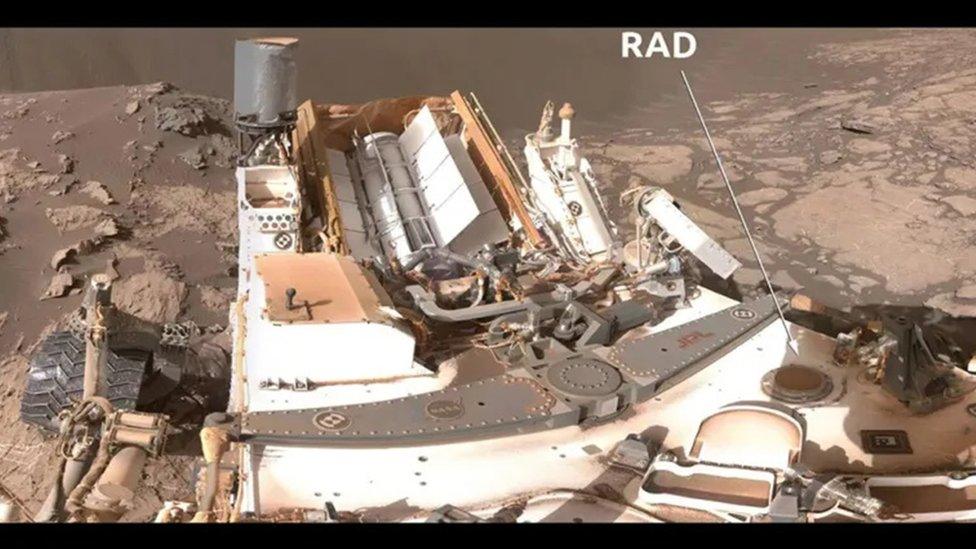
The Curiosity Rover has a special feature that can measure the radiation on the red planet
MAVEN is currently in orbit around Mars and it's used to analyse things like radiation and solar particles in Mars' atmosphere.
But down on the ground it's the Curiosity Rover, which collects data about radiation using its Radiation Assessment Detector (RAD).
Scientists will use this information to find out whether astronauts can use caves or cliff faces for protection.
This research could be really important in understanding if humans really can survive and live on Mars in the future.
- Published12 April 2024
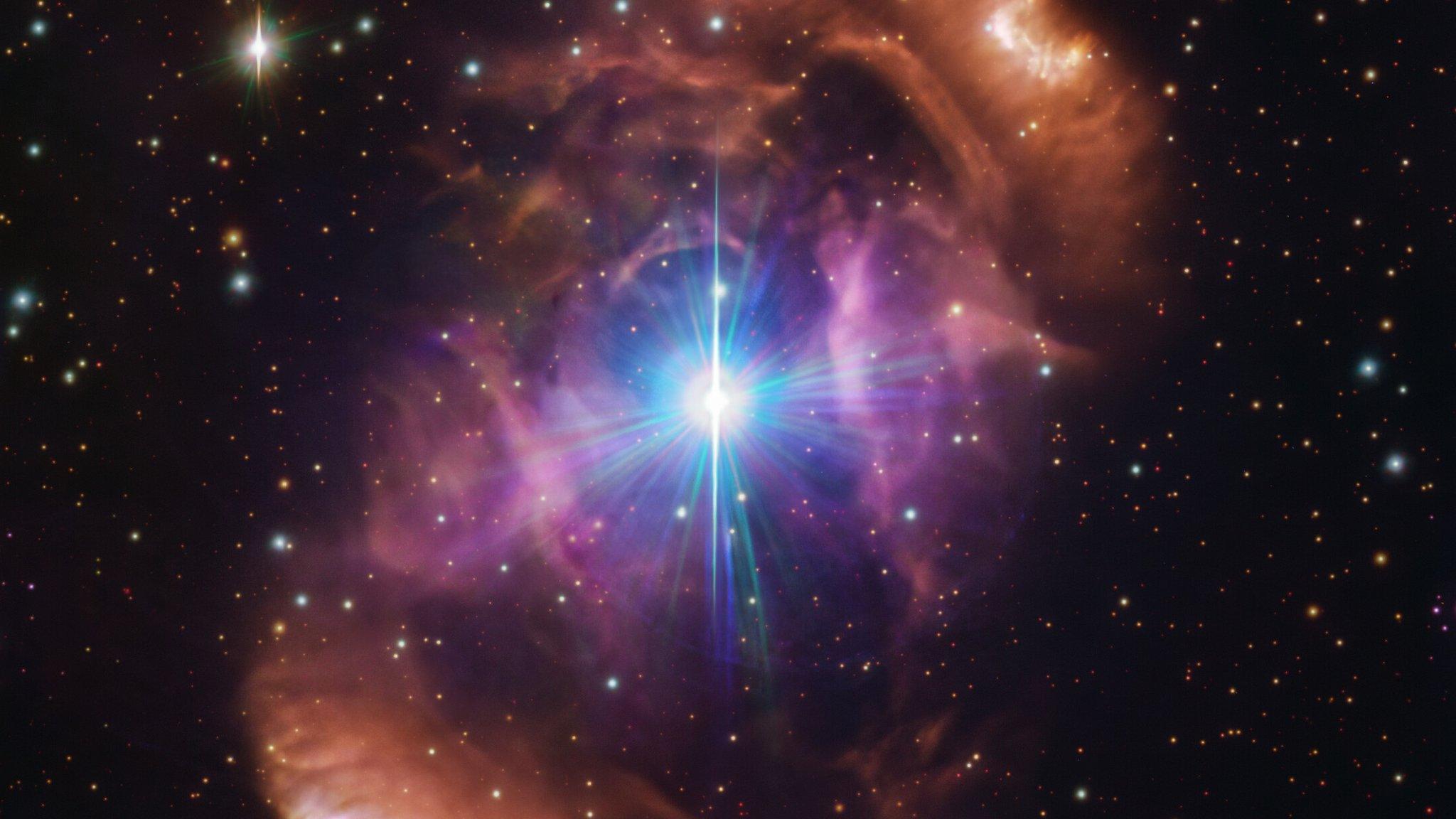
- Published6 December 2023
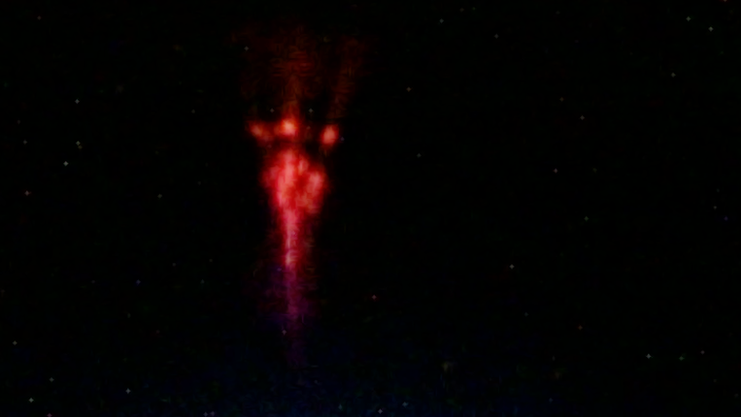
- Published27 April 2024

